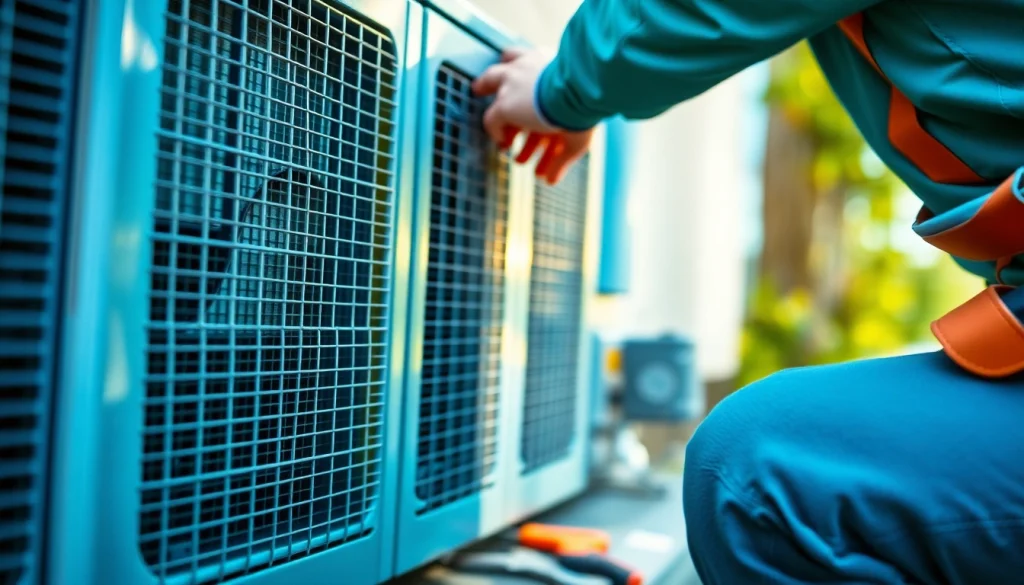Understanding Why Your Central Air Conditioner is Not Blowing Cold
When the summer heat hits, the last thing you want is for your central air conditioner to stop blowing cold air. It’s a common problem that can stem from various issues, both minor and more serious. Understanding the underlying reasons can help you troubleshoot before calling a professional. From central air conditioner is not blowing cold to system malfunctions, the causes can vary significantly.
Common Symptoms of a Failing AC Unit
Recognizing the symptoms of a failing AC unit is crucial for timely intervention. Common signs include:
- Warm air blowing out: When you set your AC to cool but it only blows warm or lukewarm air, there’s an issue.
- No air coming from vents: If the vents are entirely stale, this points towards a problem with airflow.
- Unusual noises: Strange sounds like banging or hissing can indicate a mechanical failure.
- Ice buildup: Ice forming on or around the AC unit can signify inadequate airflow or low refrigerant levels.
Importance of Regular Maintenance
Regular maintenance is vital for your AC’s performance and longevity. A seasonal check-up can prevent major breakdowns by addressing the small issues before they become big problems. Routine maintenance tasks include:
- Inspecting and replacing filters.
- Checking the refrigerant level.
- Cleaning coils and fins.
Maintaining your AC can save you money in the long run by preventing costly repairs.
How Temperature Fluctuations Affect Performance
Monitoring temperature fluctuations is essential as extreme temperatures can put excess stress on your air conditioning system. When outside temperatures soar, your unit must work harder to cool your space, potentially leading to performance issues. Be aware of the ambient outdoor temperature and reduce the load on your AC by using shades or fans when necessary.
Identifying Key Issues When the Central Air Conditioner is Not Blowing Cold
Low Refrigerant Levels: The Culprit Behind Poor Cooling
One of the most common reasons for poor cooling performance is low refrigerant levels, often caused by leaks in the system. Refrigerant is the lifeblood of your AC; without an adequate supply, the unit cannot absorb heat effectively. Signs of low refrigerant include:
- Warm air blowing from vents.
- Increased energy bills due to the unit running harder.
- Ice forming on refrigerant lines.
If you suspect low refrigerant levels, it’s essential to contact a certified technician to identify and repair any leaks before recharging the system.
Thermostat Problems and Incorrect Settings
Your thermostat plays a pivotal role in regulating air conditioning functionality. If it’s malfunctioning or set incorrectly, it can lead to improper cooling. Check for the following:
- Ensure it’s set to the correct cooling mode and temperature.
- Look for signs of wear and tear or corrosion.
- Consider recalibrating if it appears inaccurate.
In cases where basic troubleshooting doesn’t help, replacing the thermostat may be necessary for reliable operation.
Filtration Issues: Clogged Filters and Their Impact
A dirty or clogged filter is one of the most frequently overlooked causes of reduced cooling efficiency. Filters should be checked and changed regularly (ideally every 1-3 months). Clogged filters obstruct airflow, reducing the AC’s ability to cool the air. Symptoms include:
- Weak airflow from the vents.
- Increased energy consumption.
- Frequent system cycling.
By regularly changing your filters, you can maintain comfortable home temperatures and extend the lifespan of your unit.
Steps to Troubleshoot Your Central Air Conditioner
DIY Inspection: What to Look For
If your air conditioner suddenly stops blowing cold air, conducting a DIY inspection can help diagnose simple issues. Here are some steps you can take:
- Check the thermostat settings to ensure it’s on the cooling mode.
- Examine the air filter; if it’s dirty, replace it.
- Inspect the outdoor unit for debris or blockages that could be obstructing airflow.
- Look for ice on the evaporator coils, which could indicate low refrigerant or poor airflow.
While some problems can be resolved through DIY inspections, others may require a professional touch.
When to Call a Professional Technician
Knowing when to call a professional is key to preventing further damage. You should contact a technician when you notice:
- Persistent issues that DIY fixes don’t resolve.
- Significant ice buildup that might indicate a refrigerant leak.
- Unusual sounds or odors that are not typical during regular operation.
Professional HVAC technicians have the expertise required to safely and effectively diagnose and resolve issues with central air conditioning units.
Resetting Your AC: Simple Yet Effective Strategies
Sometimes, simply resetting your air conditioning unit can resolve issues. To reset your AC:
- Turn off the thermostat.
- Find the circuit breaker connected to the AC unit, turn it off for at least 30 seconds.
- Turn the circuit breaker back on and adjust your thermostat settings as needed.
This simple reset can help restore functionality when minor glitches occur.
Preventing Future Issues with Your Air Conditioner
Routine Maintenance Checklist for Homeowners
To keep your central AC in top shape and ensure it continues to blow cold air, consider implementing a regular maintenance checklist. This includes:
- Replacing or cleaning filters regularly.
- Cleaning the condenser coils.
- Checking and cleaning the drain line for blockages.
- Scheduling annual professional maintenance checks.
Educating Yourself on Air Conditioning Systems
Understanding how your air conditioning system works can empower you as a homeowner. The more you know about the components and their functions, the better positioned you will be to troubleshoot minor issues or communicate effectively with technicians.
Recognizing Signs of Potential Problems Early
Being vigilant and recognizing early signs of AC issues can save you from costly repairs down the line. Look out for:
- Unusual noises that were not present before.
- Increased energy bills without a change in usage.
- Frequent cycling on and off.
Early detection means you can address problems when they are less severe and less expensive to fix.
Cost Factors to Consider When Repairing Your AC
Understanding Repair vs. Replacement Costs
When your central air conditioner fails to blow cold air, you’ll need to assess whether to repair or replace the unit. Factors influencing this decision include:
- The age of the system (generally over 10-15 years indicates replacement might be more cost-effective).
- Severity of the problem and associated repair costs.
- Energy efficiency and potential savings of a new unit.
Budgeting for Regular Maintenance Services
Understanding the cost of maintenance versus the costs associated with repairs can help in budgeting effectively. Regular maintenance typically costs much less than emergency repairs or replacements. Most HVAC companies offer annual service contracts that can provide savings over time.
How to Choose the Right HVAC Professional
Selecting a qualified HVAC technician is crucial for proper service. Ensure your technician:
- Is licensed and insured.
- Has good reviews and recommendations.
- Offers clear pricing and estimates prior to work commencing.
By investing in a qualified professional, you ensure that your air conditioning system gets the care it needs, ultimately prolonging its life and efficiency.



